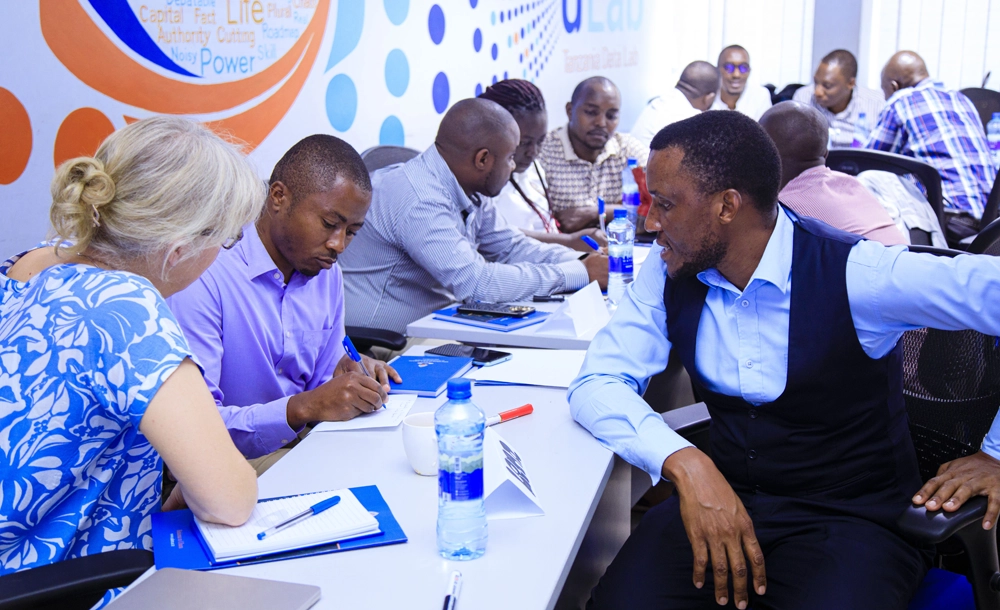Start of the new training programme Building Innovation Capabilities

Can public sector organisations in Tanzania and Kenya work in a more innovative way to address complex societal issues? In October 2024, the Building Innovation Capabilities (BIC) programme started with a gathering at the University of Dar es Salaam.
A new programme funded by the Swedish Institute, the Building Innovation Capabilities (BIC) programme, is training public sector officials in Tanzania and Kenya to address societal challenges more innovatively. The programme highlights the essential role of the public sector in innovation ecosystems tackling complex societal issues, leveraging Challenge-Driven Education and Innovation (CDE&I) to promote shared learning and problem solving. The programme is developed through close collaboration between Strathmore University in Kenya, the University of Dar es Salaam in Tanzania, and KTH Royal Institute of Technology in Sweden. It combines online training with in-person meetings in Tanzania and Kenya.
Susanne Nilsson, Researcher at Integrated Product Development and Design at KTH, is the Programme Leader:
“The BIC programme is tailored to strengthen innovation capabilities within the public sector specifically targeting Kenya and Tanzania. Public sector entities are major providers of essential services and thus hold a unique position to drive innovation within sectors such as healthcare, education, and infrastructure. They have the reach and regulatory power to implement wide-scale changes that can lead to significant societal benefits,” Dr. Nilsson says.
Participants from various public authorities
The 26 participants are public sector servants from various public authorities in Tanzania and Kenya, often in leadership positions. The public organisations involved are the Planning Commission, PSSSF and PORLAG in Tanzania as well as the Kenyan Ministry of Roads and Transport, Kenyatta National Hospital, Kerio Valley Development Authority, Kenyatta University, and the National Construction Authority in Kenya.
The programme started with a gathering of participants and teachers at the University of Dar es Salaam in Tanzania in October 2024. The purpose of the first session was to help participants understand what innovation and innovation capabilities mean within their own organisations. It also aimed to equip them with methods to assess needs and identify actions related to innovation and innovation capabilities, particularly in addressing societal challenges.
Dr. Moses Ismail, Lecturer at the University of Dar es Salaam, is a Project Coordinator for UDSM. UDSM was hosting the first training session.
“The training session in Dar es Salaam infused participants with foundational knowledge about innovation addressing societal challenges. By combining theoretical content with practical exercises and discussions, it prepared the public sector representatives to conceptualise innovation within their unique contexts and identify what capabilities are essential to develop. The participants started the work of identifying an Internal Innovation Capability Project for their organisation that they will work with during the programme,” Dr. Ismail says.

Second module on education and innovation
A second module online followed in November 2024, focusing on the role of Challenge Driven Education and Innovation.
Bernard Shibwabo, Associate Professor at Strathmore University, is the Project Coordinator for Strathmore University, and the main responsible teacher for module II:
“In the second module, we focused on CDE&I as a tool for addressing societal challenges. The purpose was to educate the participants on the dynamics of innovation within CDE frameworks, providing the participants with an understanding of how these principles can be applied to real-world issues. The participants were also given the task to identify a potential CDE project within their organisation,” Prof. Shibwabo says.
The training programme is a one-year project that will continue until May 2025.
